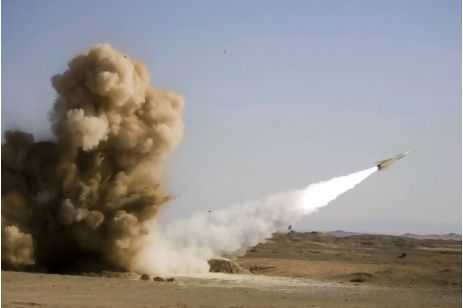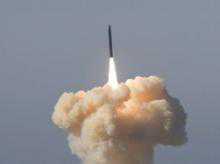ISTANBUL // Driven by concerns that a proposed Nato defence shield could ruin its own efforts to improve ties with neighbouring Iran and to boost its regional role, Turkey is demanding changes to the alliance’s plans for the missile system.

Ankara has not ruled out the possibility of failing to find an agreement during a Nato summit meeting starting today.
“If there is an agreement, great,” Recep Tayyip Erdogan, the prime minister, said earlier this week. “If no agreement can be reached, there is nothing for us to say.”
A stand by Turkey against the project at the two-day summit meeting of the 28 Nato member states in Lisbon would be sure to trigger new concerns about a suspected re-orientation of Ankara’s foreign policy away from the West. But Mr Erdogan’s government argues it is only trying to preserve its national interests within Nato.
The prime minister made it clear his government was aware of its obligations as a member of the Western defence bloc, which Turkey joined in 1952 and where decisions are taken with the consent of all member states.
“Without a doubt, this is a step to be taken as a Nato member”, Mr Erdogan said about participation in the missile project.
Nato wants to install a missile system in Europe in defence against potential attacks with ballistic missiles on the continent from countries like Iran or North Korea.
A previous plan for a Nato missile shield in eastern Europe drew criticism from Russia, but the alliance hopes that it can win Moscow’s support for the new plan.
As the only Nato member bordering Iran, which has a military missile system and is suspected by the West of conducting a secret programme to develop nuclear weapons, Turkey plays an important role in the alliance’s plans.
Experts say Nato missiles deployed in Turkey would be able to shoot down Iranian missiles shortly after their launch. James Townsend, the United States’ deputy assistant secretary of defence for European and Nato policy, was quoted by Turkish media last month as saying that Turkey was “very much along the front lines” of a potential conflict with ballistic missiles.
Turkey is concerned that the missile shield could put Ankara back into a frontline position similar to that it occupied during the Cold War, when it was Nato’s south-eastern outpost on the border with the Soviet Union.
Another concern is that the missile plan could spoil Ankara’s relations with Iran and might be used in a US-led military confrontation that it does not want to be a part of. Mr Erdogan said he raised Turkey’s “sensitivities” in a conversation with Barack Obama, the US president, during the G20 summit in Seoul last week.
Mr Erdogan said Turkey would insist on receiving the command over the missiles deployed on its territory. “It has certainly to be given to us,” Mr Erdogan said about the command. “Otherwise it will be impossible to agree to such a thing.”
As an alliance project like the missile defence system would have a joint Nato command, rather than a national one, news reports suggested that Mr Erdogan was trying to make sure that Turkey would have a place in that command mechanism and that important parts of the missile system would be based in Turkey.
The Turkish prime minister also renewed his government’s demand that no country would be singled out as a source of threat in a document, describing the new Nato strategy for the coming 10 to 15 years, which is to be adopted in Lisbon.
Ankara is concerned that naming Iran as a threat to the alliance could undermine its own efforts to improve ties to Tehran. Relations between the two countries have flourished in recent years. Earlier this year, Turkey, in cooperation with Brazil, hammered out an agreement with Tehran that was designed to defuse the row surrounding Iran’s nuclear programme. The West rejected the deal, however, prompting Turkey to vote against fresh Iran sanctions in the United Nations Security Council. Next page
Missile system may put Ankara on the front line against Iran.





